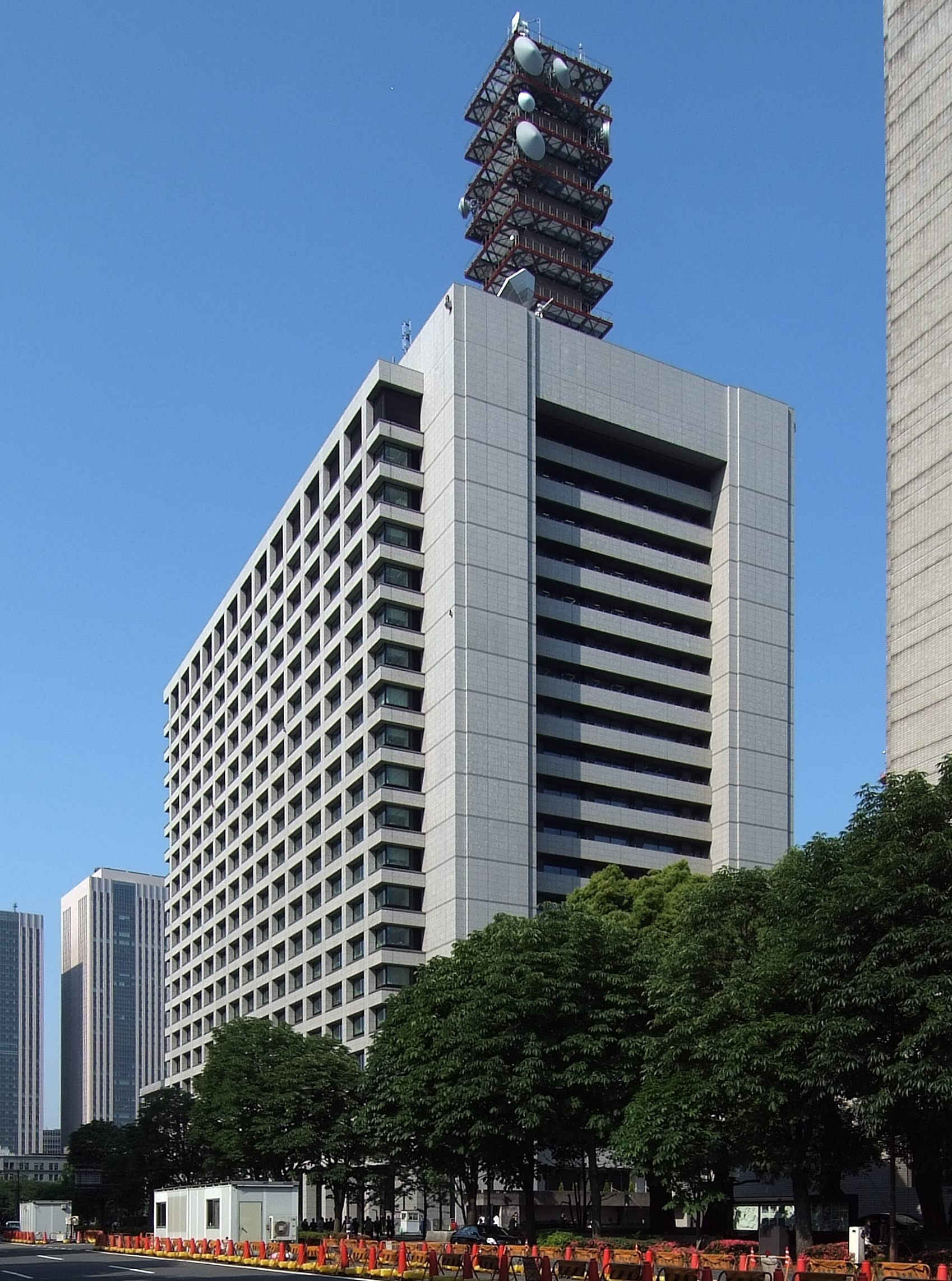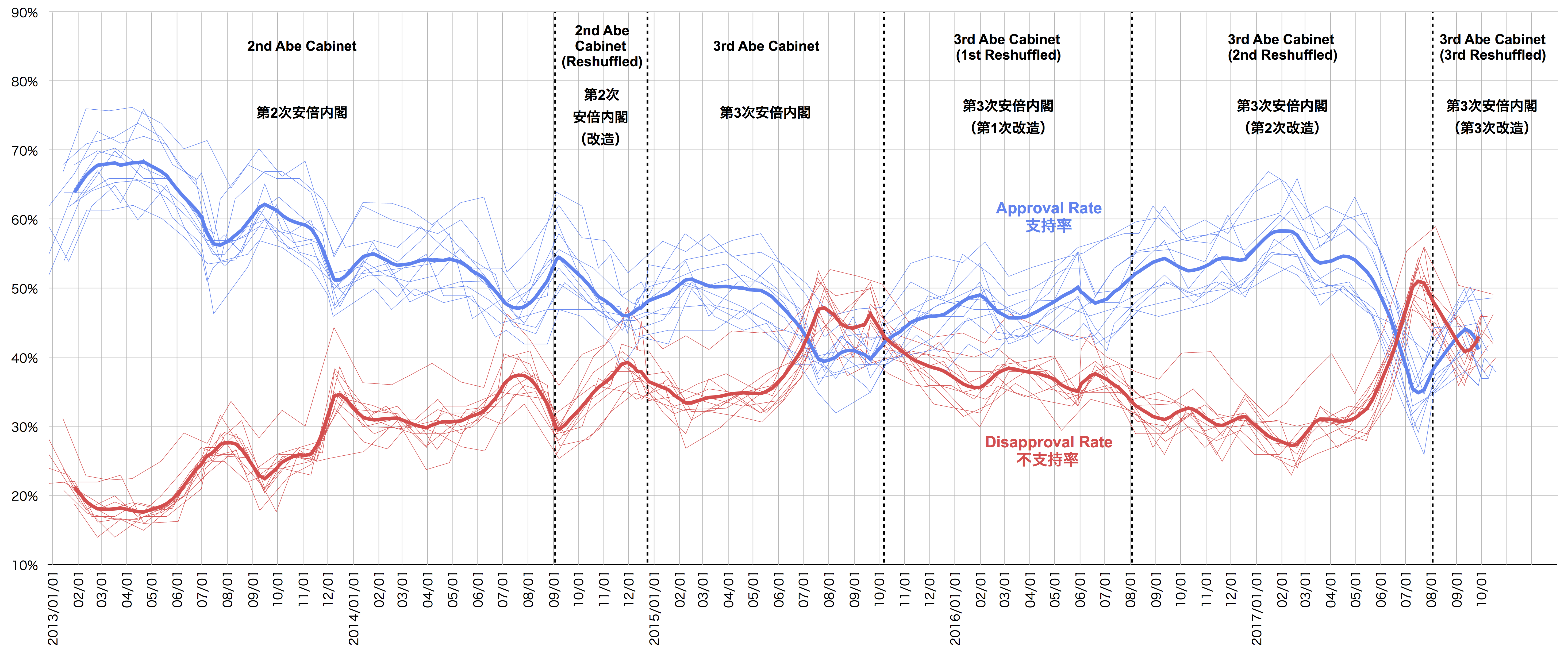|
Masashi Adachi
Masashi Adachi (阿達 雅志 ''Adachi Masashi'', b. September 27, 1959) is a Japanese politician who serves as a member of the House of Councillors and as an advisor to Prime Minister Yoshihide Suga. Early life Adachi was born in Sakyo-ku, Kyoto, and grew up in Fukui, Sakai, and Takatsuki. He graduated from the University of Tokyo and joined Sumitomo Corporation in 1983, where he worked on rail car exports to the United States. He obtained an MCJ and LLM from the New York University School of Law in 1993, and became qualified as a lawyer in New York. He thereafter worked in the legal department of Sumitomo, and in the executive office of its Chinese subsidiary. He left Sumitomo in 2000, and thereafter worked for his father-in-law, Shinji Sato (a Diet member and son of Prime Minister Eisaku Sato), from 2003 to 2004. He then worked for the law firm of Paul Weiss in Tokyo from 2004 to 2014. Political career He ran as a Liberal Democratic Party candidate for the House of C ... [...More Info...] [...Related Items...] OR: [Wikipedia] [Google] [Baidu] |
National Diet
The is the national legislature of Japan. It is composed of a lower house, called the House of Representatives (Japan), House of Representatives (, ''Shūgiin''), and an upper house, the House of Councillors (Japan), House of Councillors (, '' Sangiin''). Both houses are directly elected under a parallel voting, parallel voting system. In addition to passing laws, the Diet (assembly), Diet is formally responsible for nominating the Prime Minister of Japan, Prime Minister. The Diet was first established as the Imperial Diet in 1890 under the Meiji Constitution, and took its current form in 1947 upon the adoption of the Constitution of Japan, post-war constitution. Both houses meet in the in Nagatachō, Chiyoda, Tokyo, Chiyoda, Tokyo. Composition The houses of the National Diet are both elected under parallel voting systems. This means that the seats to be filled in any given election are divided into two groups, each elected by a different method; the main difference bet ... [...More Info...] [...Related Items...] OR: [Wikipedia] [Google] [Baidu] |
読売新聞
The (lit. ''Reading-selling Newspaper'' or ''Selling by Reading Newspaper'') is a Japanese newspaper published in Tokyo, Osaka, Fukuoka, and other major Japanese cities. It is one of the five major newspapers in Japan; the other four are the ''Asahi Shimbun'', the ''Chunichi Shimbun (Tokyo Shimbun)'' the ''Mainichi Shimbun'', and the ''Nihon Keizai Shimbun''. It is headquartered in Otemachi, Chiyoda, Tokyo.' It is a newspaper that represents Tokyo and generally has a conservative orientation. It is one of Japan's leading newspapers, along with the Osaka-based liberal (Third way) Asahi Shimbun and the Nagoya-based Social democratic Chunichi Shimbun. It is published by regional bureaus, all of them subsidiaries of The Yomiuri Shimbun Holdings, Japan's largest media conglomerate by revenue and the second largest media conglomerate by size behind Sony,The Yomiuri Shimbun Holdings is the largest media conglomerate by revenue in Japan, while Sony is Japan's largest media congl ... [...More Info...] [...Related Items...] OR: [Wikipedia] [Google] [Baidu] |
Academic Staff Of Nihon University
An academy ( Attic Greek: Ἀκαδήμεια; Koine Greek Ἀκαδημία) is an institution of secondary or tertiary higher learning (and generally also research or honorary membership). The name traces back to Plato's school of philosophy, founded approximately 385 BC at Akademia, a sanctuary of Athena, the goddess of wisdom and skill, north of Athens, Greece. Etymology The word comes from the ''Academy'' in ancient Greece, which derives from the Athenian hero, '' Akademos''. Outside the city walls of Athens, the gymnasium was made famous by Plato as a center of learning. The sacred space, dedicated to the goddess of wisdom, Athena, had formerly been an olive grove, hence the expression "the groves of Academe". In these gardens, the philosopher Plato conversed with followers. Plato developed his sessions into a method of teaching philosophy and in 387 BC, established what is known today as the Old Academy. By extension, ''academia'' has come to mean the accumulatio ... [...More Info...] [...Related Items...] OR: [Wikipedia] [Google] [Baidu] |
University Of Tokyo Alumni
A university () is an institution of higher (or tertiary) education and research which awards academic degrees in several academic disciplines. Universities typically offer both undergraduate and postgraduate programs. In the United States, the designation is reserved for colleges that have a graduate school. The word ''university'' is derived from the Latin ''universitas magistrorum et scholarium'', which roughly means "community of teachers and scholars". The first universities were created in Europe by Catholic Church monks. The University of Bologna (''Università di Bologna''), founded in 1088, is the first university in the sense of: *Being a high degree-awarding institute. *Having independence from the ecclesiastic schools, although conducted by both clergy and non-clergy. *Using the word ''universitas'' (which was coined at its foundation). *Issuing secular and non-secular degrees: grammar, rhetoric, logic, theology, canon law, notarial law.Hunt Janin: "The university i ... [...More Info...] [...Related Items...] OR: [Wikipedia] [Google] [Baidu] |
People From Kyoto
A person ( : people) is a being that has certain capacities or attributes such as reason, morality, consciousness or self-consciousness, and being a part of a culturally established form of social relations such as kinship, ownership of property, or legal responsibility. The defining features of personhood and, consequently, what makes a person count as a person, differ widely among cultures and contexts. In addition to the question of personhood, of what makes a being count as a person to begin with, there are further questions about personal identity and self: both about what makes any particular person that particular person instead of another, and about what makes a person at one time the same person as they were or will be at another time despite any intervening changes. The plural form "people" is often used to refer to an entire nation or ethnic group (as in "a people"), and this was the original meaning of the word; it subsequently acquired its use as a plural form of per ... [...More Info...] [...Related Items...] OR: [Wikipedia] [Google] [Baidu] |
1959 Births
Events January * January 1 - Cuba: Fulgencio Batista flees Havana when the forces of Fidel Castro advance. * January 2 - Lunar probe Luna 1 was the first man-made object to attain escape velocity from Earth. It reached the vicinity of Earth's Moon, and was also the first spacecraft to be placed in heliocentric orbit. * January 3 ** The three southernmost atolls of the Maldive archipelago ( Addu Atoll, Huvadhu Atoll and Fuvahmulah island) declare independence. ** Alaska is admitted as the 49th U.S. state. * January 4 ** In Cuba, rebel troops led by Che Guevara and Camilo Cienfuegos enter the city of Havana. ** Léopoldville riots: At least 49 people are killed during clashes between the police and participants of a meeting of the ABAKO Party in Léopoldville in the Belgian Congo. * January 6 ** Fidel Castro arrives in Havana. ** The International Maritime Organization is inaugurated. * January 7 – The United States recognizes the new Cuban government of F ... [...More Info...] [...Related Items...] OR: [Wikipedia] [Google] [Baidu] |
Living People
Related categories * :Year of birth missing (living people) / :Year of birth unknown * :Date of birth missing (living people) / :Date of birth unknown * :Place of birth missing (living people) / :Place of birth unknown * :Year of death missing / :Year of death unknown * :Date of death missing / :Date of death unknown * :Place of death missing / :Place of death unknown * :Missing middle or first names See also * :Dead people * :Template:L, which generates this category or death years, and birth year and sort keys. : {{DEFAULTSORT:Living people 21st-century people People by status ... [...More Info...] [...Related Items...] OR: [Wikipedia] [Google] [Baidu] |
Shinzo Abe
Shinzo Abe ( ; ja, 安倍 晋三, Hepburn romanization, Hepburn: , ; 21 September 1954 – 8 July 2022) was a Japanese politician who served as Prime Minister of Japan and President of the Liberal Democratic Party (Japan), President of the Liberal Democratic Party (LDP) from 2006 to 2007 and again from 2012 to 2020. He was the List of prime ministers of Japan#Rank by length of total tenures, longest-serving prime minister in Japanese history. Abe also served as Chief Cabinet Secretary from 2005 to 2006 under Junichiro Koizumi and was briefly the opposition leader in 2012. Abe was born into a prominent political family in Tokyo and was the grandson of Prime Minister Nobusuke Kishi. After graduating from Seikei University and briefly attending the University of Southern California, Abe was elected to the House of Representatives (Japan), House of Representatives in the 1993 Japanese general election, 1993 election. Abe was appointed Chief Cabinet Secretary by Prime Minister Koizu ... [...More Info...] [...Related Items...] OR: [Wikipedia] [Google] [Baidu] |
Ministry Of Land, Infrastructure, Transport And Tourism
The , abbreviated MLIT, is a ministry of the Japanese government.国土交通省設置法 , Ministry of Internal Affairs and Communications. It is responsible for one-third of all the laws and orders in Japan, and is the largest Japanese ministry in terms of employees, as well as the second-largest executive agency of the Japanese government after the Ministry of Defense (Japan), Ministry of Defense. The ministry oversees four external agencies including the Japan Coast Guard and the Japan Tourism Agency. Overview In order to accomplish the tasks set forth in Article 3 of the Ministry of Land, Infrastructure, Transport and Tourism Act, the following should be considered: national land planning, cities, roads, buildings, houses, rivers, ports, government maintenance, national land surveying, transp ...[...More Info...] [...Related Items...] OR: [Wikipedia] [Google] [Baidu] |
2016 Japanese House Of Councillors Election
House of Councillors elections were held in Japan on Sunday 10 July 2016 to elect 121 of the 242 members of the House of Councillors, the upper house of the National Diet, for a term of six years. As a result of the election, the Liberal Democratic Party–Komeito coalition gained ten seats for a total of 145 (60% of all seats in the house), the largest coalition achieved since the size of the house was set at 242 seats. 76 members were elected by single non-transferable vote (SNTV) and first-past-the-post (FPTP) voting in 45 multi- and single-member prefectural electoral districts; for the first time, there were two combined (''gōku'') single-member districts consisting of two prefectures each, Tottori-Shimane and Tokushima-Kōchi. This change and several other reapportionments were part of an electoral reform law passed by the Diet in July 2015 designed to reduce the maximum ratio of malapportionment in the House of Councillors below 3. The nationwide district which elects 48 ... [...More Info...] [...Related Items...] OR: [Wikipedia] [Google] [Baidu] |
2014 Japanese General Election
General elections were held in Japan on 14 December 2014. Voting took place in all Representatives constituencies of Japan including proportional blocks to elect the members of the House of Representatives, the lower house of the National Diet of Japan. As the cabinet resigns in the first post-election Diet session after a general House of Representatives election (Constitution, Article 70), the lower house election also led to a new election of the prime minister in the Diet, won by incumbent Shinzō Abe, and the appointment of a new cabinet (with some ministers re-appointed). The voter turnout in this election remains the lowest in Japanese history. Background In 2012, the Democratic Party government under Yoshihiko Noda decided to raise the Japanese consumption tax. This unpopular moved allowed the Liberal Democratic Party under Shinzo Abe to regain control of the Japanese government in the 2012 Japanese general election. Abe proceeded to implement a series of economic prog ... [...More Info...] [...Related Items...] OR: [Wikipedia] [Google] [Baidu] |


_1938.jpg)


